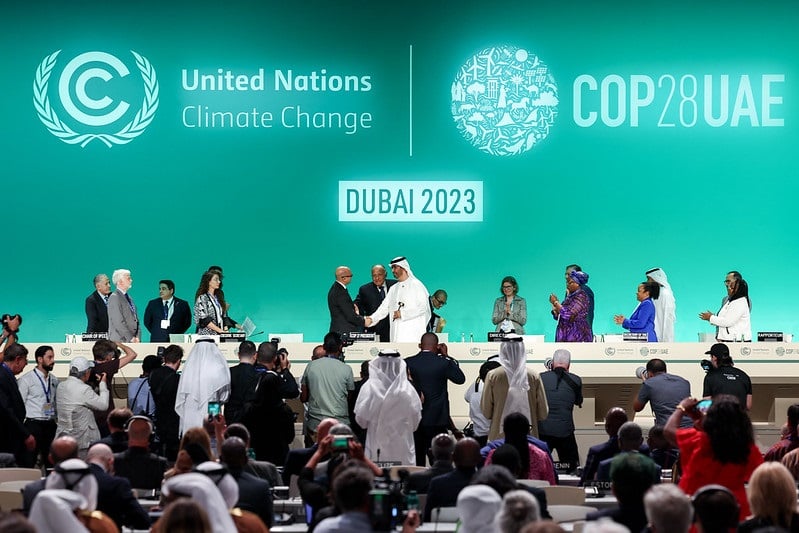
World leaders attending COP29 next month have been encouraged to sign a pledge to collectively increase global energy storage capacity to 1,500GW by 2030.
The pledge would bring the United Nations (UN) in line with recent commitments by G7 and G20 countries and modelling by the International Energy Agency (IEA), which found that 1.5TW of storage will be needed to enable global renewable energy targets.
Enjoy 12 months of exclusive analysis
- Regular insight and analysis of the industry’s biggest developments
- In-depth interviews with the industry’s leading figures
- Annual digital subscription to the PV Tech Power journal
- Discounts on Solar Media’s portfolio of events, in-person and virtual
Ahead of the multilateral United Nations climate summit, which will take place from 11 to 22 November in Azerbaijan’s capital, Baku, the COP29 Presidency has published nine Declarations and Pledges for its Action Agenda.
The Action Agenda was first outlined last month. The Azerbaijani Presidency has now issued the final texts of Declarations and Pledges, which alongside commitment to the Energy Storage and Grids Pledge, include a Green Energy Pledge to establish ‘green energy zones and corridors.’
In the historic 2015 Paris Agreement, the UN set the goal of limiting global temperature increases to less than 2°C below pre-industrial levels and to within 1.5°C, recognising that renewable energy deployment would need to be tripled by 2030 and energy efficiency improvement rates doubled.
Falling costs, rising value of energy storage
The final text of the Energy Storage and Grids Pledge for COP29 recognises the essential role both play in the power sector’s decarbonisation, including facilitating the increased integration of renewable energy and providing stable and secure supply of electricity.
It also recognises that the cost of batteries has fallen on average by 90% since 2009, and concurs with IEA and International Renewable Energy Agency (IRENA) findings of the benefits of storage for the grid.
These include the ability of storage to smooth variable renewable energy (VRE) generation, alleviate grid congestion and provide grid services, such as frequency and voltage regulation ancillary services.
‘End double-charging’, COP29 Presidency says
The COP29 Pledge sets out 11 different suggestions for pathways that can be taken to support the effective deployment of energy storage.
These include policy and regulatory frameworks that facilitate the adoption of storage and remove barriers to investment such as double-charging for use of the grid—something the Energy Storage Coalition in Europe recently strongly advocated for.
There should be better planning regimes for investment in national power sectors that take a more holistic view of how energy storage at different scales can benefit the network, the Presidency said, while technology development and deployment that can reduce the costs and increase efficiency of energy storage systems should also be pursued.
It also calls for a more diversified and transparent supply chain for materials and components, including analysis of alternative or emerging technologies, encouraging standardisation across products and strengthening international collaboration, as well as fostering a more inclusive and socially aware industry.
Meanwhile, on the grid side, the addition or refurbishment of more than 25,000,000km of grid infrastructure will be needed by 2030, while by 2040, the IEA has projected more than 40,000,000km of grid refurbishment or addition would be needed.
The Pledge makes seven suggestions, including exploring the role of batteries as a transmission or distribution asset, addressing planning and permitting bottlenecks to grid development, supporting renewable energy integration, and others.
The COP29 Presidency called on national governments and other stakeholders to endorse the pledge. It said that current forecasts predict that 650GW of energy storage will be on the world’s grids by 2030, which, despite being evidence of the massive growth of storage adoption, would fall well short of the required target.
COP28, which took place in Dubai, UAE, last year, ended with a pledge to “transition away from fossil fuels.” However, climate scientists widely described the outcome as a disappointment in not enacting a rapid phase-out within a set time frame, which some said effectively allowed for oil and gas producers to carry on with business-as-usual.






